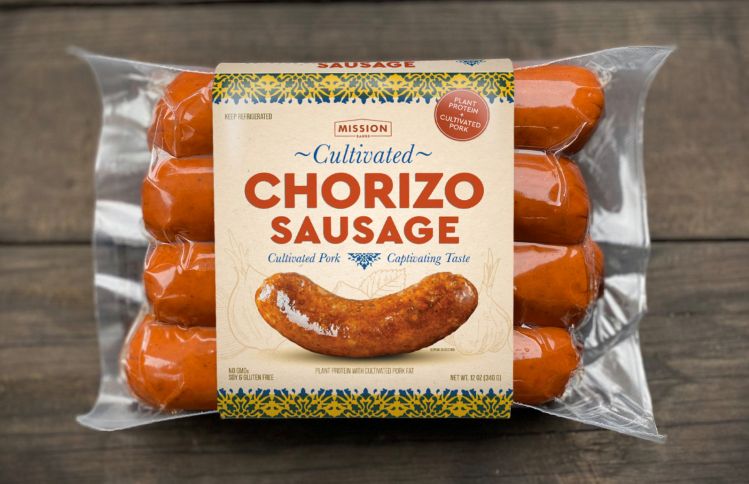
While some established vegan or vegetarian brands may be reluctant to jeopardize their 100% plant-based credentials by adding animal fat (albeit produced in bioreactors, not animals) to their wares, many brands targeting mainstream meat-eating consumers are excited about what ‘real’ animal fat can bring to their formulations, co-founder Eitan Fischer told FoodNavigator-USA.
“We’re seeing tremendous interest from the traditional plant-based brands, new entrants, big meat companies, and other food companies.”
As part of their multi-year partnership, Mission Barns will utilize Gilroy, CA-based Silva Sausage’s 50,000 lbs per day production capacity, distribution network, packaging, and logistics to bring Mission Barns branded products to market, said Fischer.
“This scaled-up run has proven that our recipe and process work in a larger scale context to produce delicious products, and having this co-manufacturing partnership lined up means we are ready to go to market. We were pleasantly surprised with how well our benchtop process translated to full scale production with very minor modifications. We look forward to the day soon where we can bring these savory sausages, and other items, to foodservice, retail, and other channels.”
‘Fat equals flavor…’
Meat alternative brands typically use a combination of hard fat such as coconut oil, and liquid fats such as canola or sunflower oil in their burgers and sausages, although new players such as Nourish Ingredients in Australia are now developing ‘animal-like’ fats via microbial fermentation.
<![CDATA[]]>
However, even a small amount of animal fat can transform the function, flavor, and mouthfeel of a plant-based product, claims Mission Barns, which was founded in 2018, and raised $24m in a Series A earlier this year to help scale up its technology and build a pilot plant.
Fischer added: “The Mission Barns approach is Fat First. Fat is both where the flavor is and it’s an easier component to cultivate [from cells, than say, animal muscle]. Our first commercial application will combine Mission Fat with plant-protein in order to deliver on the flavor, mouthfeel and meatiness that consumers demand.
“By focusing on cultivated fat, we can get to market faster, at a lower price-point and solve the sensory issues faced by purely plant-based products.”
The regulatory path forward
So what’s the regulatory pathway for Mission Fats in the US market?
Fischer told us: “Mission Barns has completed a comprehensive assessment of its cultivated pork fat demonstrating its suitability for consumption. Importantly, the cells used are not genetically modified or engineered in any way – they come directly from a pig – and the feedstock used is entirely animal-origin-free, both of which provide a more straightforward regulatory pathway in many jurisdictions.
“Mission Barns is actively working with regulators to bring this product to market in a way that can assure consumers of its safety and high quality standards.”
‘For many consumers, taste is still the main reason they do not regularly eat plant-based products’
Nick Cooney, managing partner of Lever VC, an investor in Mission Barns, told us earlier this year: “I’ve been sampling plant-based meats for 20 years from a huge variety of brands globally, and have never tasted anything as meat-like as products containing Mission Fat. This is going to help brands around the world have a dramatically better product almost overnight.”
Asked about the appetite for animal products in plant-based meats, he noted that we already have hybrid meat products on the market, while an emerging category is developing in the dairy aisle featuring recombinant dairy proteins produced without cows.
“If it adds a lot to the taste, texture, or functionality, while some consumers may avoid it, I think it dramatically grows the base of potential customers for their product, since for many consumers, taste is still the main reason they do not regularly eat plant-based products.”
 Mission Barns raised $24m in a Series A earlier this year to help scale up its technology. Image credit: Mission Barns
Mission Barns raised $24m in a Series A earlier this year to help scale up its technology. Image credit: Mission Barns
